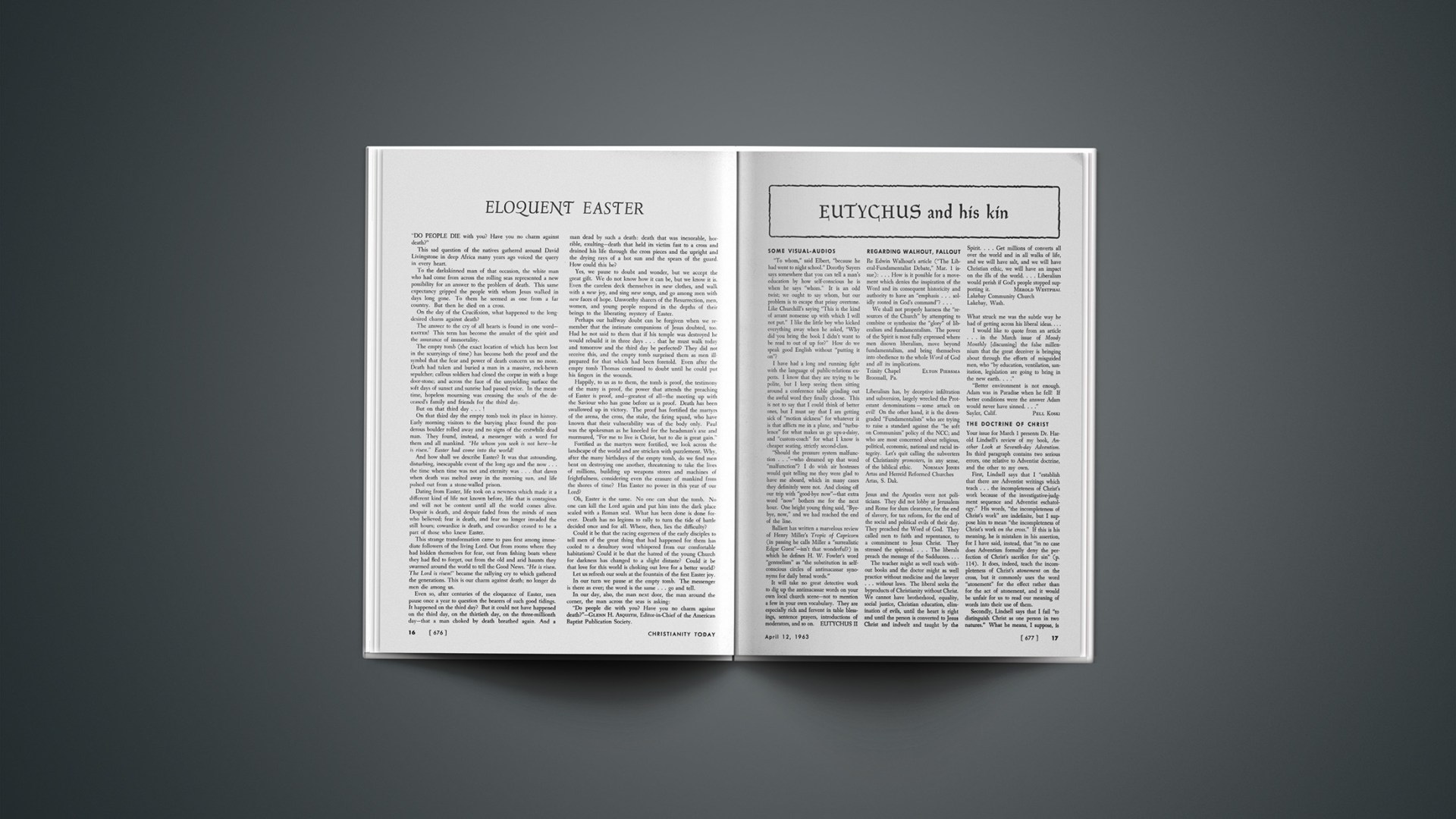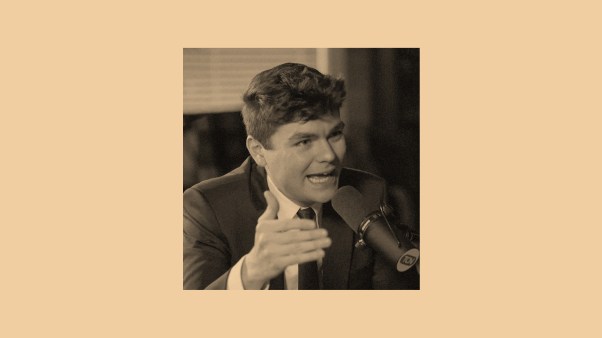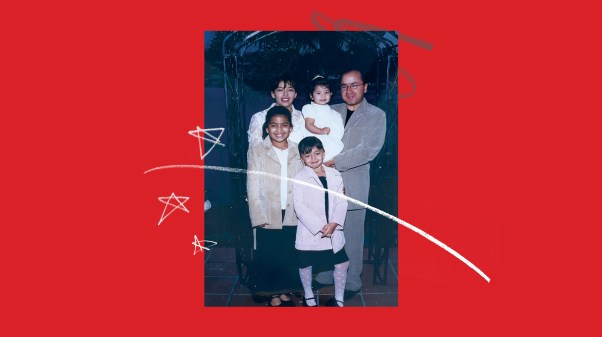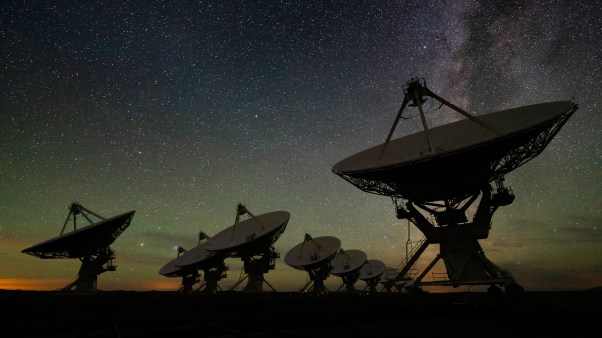“Do people die with you? Have you no charm against death?”
This sad question of the natives gathered around David Livingstone in deep Africa many years ago voiced the query in every heart.
To the darkskinned man of that occasion, the white man who had come from across the rolling seas represented a new possibility for an answer to the problem of death. This same expectancy gripped the people with whom Jesus walked in days long gone. To them he seemed as one from a far country. But then he died on a cross.
On the day of the Crucifixion, what happened to the long-desired charm against death?
The answer to the cry of all hearts is found in one word—EASTER! This term has become the amulet of the spirit and the assurance of immortality.
The empty tomb (the exact location of which has been lost in the scurryings of time) has become both the proof and the symbol that the fear and power of death concern us no more. Death had taken and buried a man in a massive, rock-hewn sepulcher; callous soldiers had closed the corpse in with a huge door-stone; and across the face of the unyielding surface the soft days of sunset and sunrise had passed twice. In the meantime, hopeless mourning was creasing the souls of the deceased’s family and friends for the third day.
But on that third day …!
On that third day the empty tomb took its place in history. Early morning visitors to the burying place found the ponderous boulder rolled away and no signs of the erstwhile dead man. They found, instead, a messenger with a word for them and all mankind. “He whom you seek is not here—he is risen.”Easter had come into the world!
And how shall we describe Easter? It was that astounding, disturbing, inescapable event of the long ago and the now … the time when time was not and eternity was … that dawn when death was melted away in the morning sun, and life pulsed out from a stone-walled prison.
Dating from Easter, life took on a newness which made it a different kind of life not known before, life that is contagious and will not be content until all the world comes alive. Despair is death, and despair faded from the minds of men who believed; fear is death, and fear no longer invaded the still hours; cowardice is death, and cowardice ceased to be a part of those who knew Easter.
This strange transformation came to pass first among immediate followers of the living Lord. Out from rooms where they had hidden themselves for fear, out from fishing boats where they had fled to forget, out from the old and arid haunts they swarmed around the world to tell the Good News. “He is risen. The Lord is risen!” became the rallying cry to which gathered the generations. This is our charm against death; no longer do men die among us.
Even so, after centuries of the eloquence of Easter, men pause once a year to question the bearers of such good tidings. It happened on the third day? But it could not have happened on the third day, on the thirtieth day, on the three-millionth day—that a man choked by death breathed again. And a man dead by such a death: death that was inexorable, horrible, exulting—death that held its victim fast to a cross and drained his life through the cross pieces and the upright and the drying rays of a hot sun and the spears of the guard. How could this be?
Yes, we pause to doubt and wonder, but we accept the great gift. We do not know how it can be, but we know it is. Even the careless deck themselves in new clothes, and walk with a new joy, and sing new songs, and go among men with new faces of hope. Unworthy sharers of the Resurrection, men, women, and young people respond in the depths of their beings to the liberating mystery of Easter.
Perhaps our halfway doubt can be forgiven when we remember that the intimate companions of Jesus doubted, too. Had he not said to them that if his temple was destroyed he would rebuild it in three days … that he must walk today and tomorrow and the third day be perfected? They did not receive this, and the empty tomb surprised them as men ill-prepared for that which had been foretold. Even after the empty tomb Thomas continued to doubt until he could put his fingers in the wounds.
Happily, to us as to them, the tomb is proof, the testimony of the many is proof, the power that attends the preaching of Easter is proof, and—greatest of all—the meeting up with the Saviour who has gone before us is proof. Death has been swallowed up in victory. The proof has fortified the martyrs of the arena, the cross, the stake, the firing squad, who have known that their vulnerability was of the body only. Paul was the spokesman as he kneeled for the headsman’s axe and murmured, “For me to live is Christ, but to die is great gain.”
Fortified as the martyrs were fortified, we look across the landscape of the world and are stricken with puzzlement. Why, after the many birthdays of the empty tomb, do we find men bent on destroying one another, threatening to take the lives of millions, building up weapons stores and machines of frightfulness, considering even the erasure of mankind from the shores of time? Has Easter no power in this year of our Lord?
Oh, Easter is the same. No one can shut the tomb. No one can kill the Lord again and put him into the dark place sealed with a Roman seal. What has been done is done forever. Death has no legions to rally to turn the tide of battle decided once and for all. Where, then, lies the difficulty?
Could it be that the racing eagerness of the early disciples to tell men of the great thing that had happened for them has cooled to a desultory word whispered from our comfortable habitations? Could it be that the hatred of the young Church for darkness has changed to a slight distaste? Could it be that love for this world is choking out love for a better world?
Let us refresh our souls at the fountain of the first Easter joy.
In our turn we pause at the empty tomb. The messenger is there as ever; the word is the same … go and tell.
In our day, also, the man next door, the man around the corner, the man across the seas is asking:
“Do people die with you? Have you no charm against death?”
—GLENN H. ASQUITH, Editor-in-Chief of the American Baptist Publication Society.










